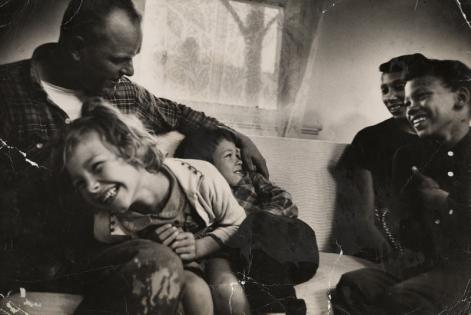Richard and Mildred Loving were not the most likely pair to be the subject of that court case. Richard, who was white, and Mildred, who was black, were both private people who had grown up in an area of Caroline County, Virginia where people of different races socialized. They had encountered few problems as childhood sweethearts, but they knew they needed to leave the state in order to marry. In 1958, they couple travelled to Washington DC where it was legal to marry across race lines. But shortly after returning to Virginia, three legal officers came to their bedroom in the middle of the night and arrested them for violating the state’s prohibition on interracial marriages. Facing the threat of prison time, the Lovings pled guilty; in exchange Judge Leon Bazile suspended their one-year prison sentences on the condition that the couple leave Virginia and not return together for a period of 25 years. The Lovings moved to Washington D.C where they could live together openly.
But after four years of living in exile, Richard and Mildred Loving decided to challenge the laws that kept them from living in their home state. Mildred wrote to Attorney General Robert Kennedy asking for his help, and he in turn sent her letter to the American Civil Liberties Union. The ACLU lawyers who took the case eventually appealed to the Supreme Court after highest court in Virginia upheld the state’s miscegenation law. The Supreme Court should hear the case, lawyers Bernard Cohen and Philip Hirschkop, insisted because “the elaborate legal structure of segregation” had been “virtually obliterated with the exception of the miscegenation law.” These laws were nothing more than “legalized racial prejudice, unsupported by reason or morals.”[1]
On June 12, 1967, the court finally settled the question: laws barring interracial marriage “contained invidious racial discrimination that could not be justified on any grounds.” The Lovings were finally free to return with their three children to Virginia.
IMAGE: Richard and Mildred Loving with their children Peggy, Donald, and Sidney in their living room, King and Queen County, Virginia, April 1965. © Estate of Grey Villet via ICP.
[1] Quoted in Peter Wallenstein, Tell the Court I Love My Wife: Race, Marriage, and Law—An American History (New York: Palgrave Macmillan, 2002), 220.


